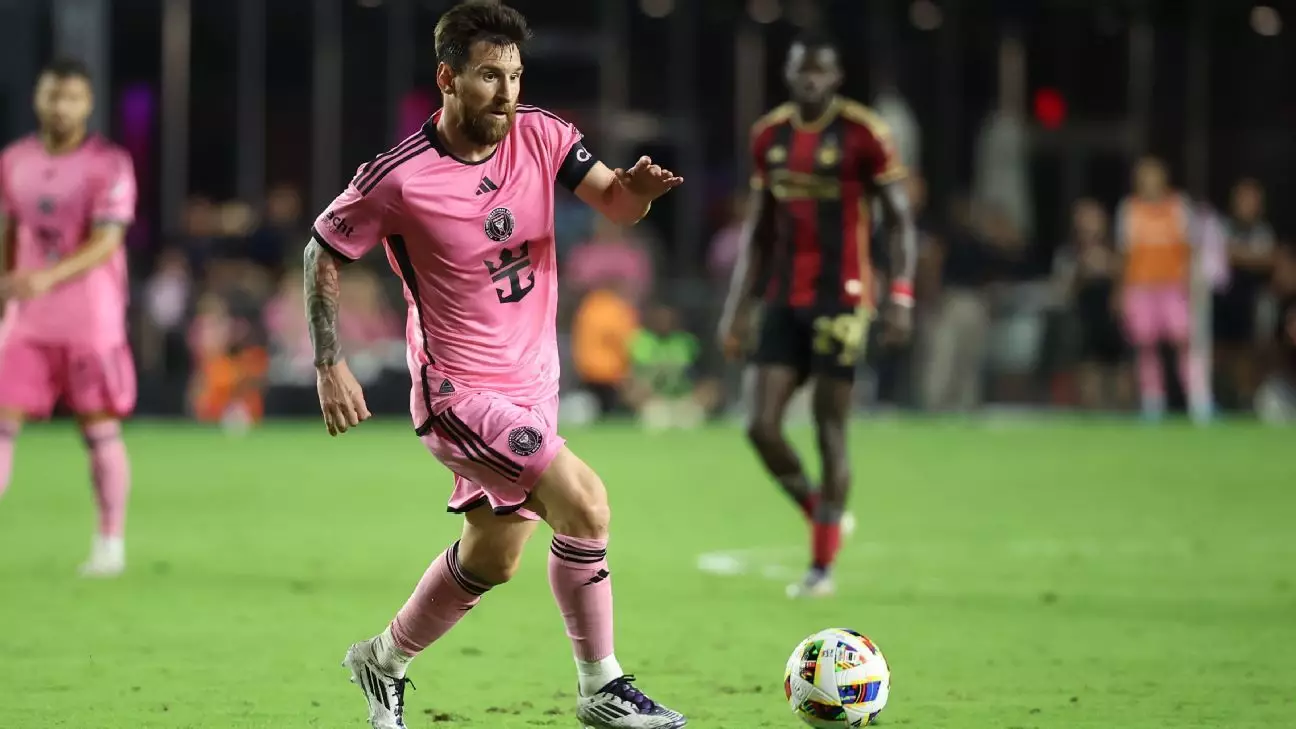In the world of Major League Soccer (MLS), few narratives have drawn as much intrigue as that of Inter Miami. When luminaries like Lionel Messi, Sergio Busquets, Jordi Alba, and Luis Suárez joined the Floridian team, it was akin to winning the lottery, not just for the franchise but for the entire league. Jorge Mas, managing owner for Inter Miami, expressed a sense of accomplishment even before the season had concluded. According to him, the arrival of these global icons marked a landmark moment for the sport in the United States. However, Mas’ optimism prompts a critical examination: Can off-field successes ignite real momentum in terms of on-pitch performance?
While Inter Miami’s management celebrated the commercial windfall of such high-profile signings, the sports world remained skeptical. Commercial success should not be conflated with athletic performance; winning trophies is the ultimate objective of any sports franchise. As the season progressed, Inter Miami defied expectations by not only clinching the Supporters’ Shield but also breaking the single-season points record, reflecting an impressive regular-season campaign. Still, the echoes of controversy loomed large, especially in light of their astonishingly early exit from the playoffs.
It’s essential to evaluate Inter Miami’s 2024 season in the context of historical performances in MLS. Among the pantheon of outstanding teams, Toronto FC’s 2017 campaign stands out as a paragon of success. Winning a domestic treble, including the MLS Cup, Supporters’ Shield, and Canadian Championship, Toronto’s dominance masked the fierce competition they faced in that remarkable season. The attacking prowess of Sebastian Giovinco and Jozy Altidore, combined with a solid midfield supported by the likes of Michael Bradley, created an all-around powerhouse that few teams could contend with.
Following closely behind Toronto’s legacy are teams like D.C. United, who etched their name in MLS history as well. The 1998 iteration of the club didn’t merely dominate domestically; they triumphed in the international arena, becoming regional champions by winning prestigious tournaments like the Concacaf Champions League. Their mix of homegrown talent and international players made them a formidable force, underscoring how success can be defined by a team’s ability to not just win in their league but also compete on a broader stage.
Recent seasons have witnessed the rise of formidable teams like LAFC and Atlanta United, which have both left their indelible marks on the league. LAFC’s dual trophy win in 2022 exemplified exuberant play under coach Steve Cherundolo, with a roster replete with talent, heading towards both regular season and playoff glory. Conversely, Atlanta United’s 2018 season showcased a blend of individual brilliance and collective strength, demonstrating how fleeting the glory can be. Captained by stars such as Josef Martínez and Miguel Almirón, their tactical sophistication led them to an MLS Cup win, further establishing Atlanta as a force to be reckoned with.
In comparison, one might note the LA Galaxy’s triumphant 2011 season, which marked the arrival of a new era under the leadership of stars like David Beckham, Landon Donovan, and Robbie Keane. Their ability to turn potential into success encapsulates the essence of enduring greatness in MLS.
Now, we return to 2024—Inter Miami’s golden opportunity turned sour in the postseason, a fact that weighs heavily against their overall narrative. Despite their record-breaking regular season, the team was met with a swift first-round exit against Atlanta United, leading many to question whether their performance matched the lofty standards set by previous champions.
This juxtaposition prompts critical reflection on the interpretation of success. Were they legitimate contenders, or just an ephemeral flash of brilliance, bolstered by celebrity players? Although they have carved a place for themselves atop regular season statistics—drawing parallels with other leading teams like New England Revolution, LAFC, and New York Red Bulls—their inability to translate regular-season success into playoff advancement has left fans and analysts alike feeling underwhelmed.
In the end, Inter Miami’s season encapsulates the duality of sports—where expectations clash with reality. Indisputably, their regular-season feats placed them alongside some of the greatest teams in MLS history. Yet, the staggering disparity between these achievements and their postseason performance is hard to ignore. As the franchise moves forward, the onus will be on them to re-strategize and re-emerge as not just a fan-favorite but a true contender—a task that requires far more than star power alone. The body of work laid out this season serves as both a foundation and a cautionary tale, reminding us that the journey toward greatness is often paved by resilience, teamwork, and sustained effort on the pitch.

